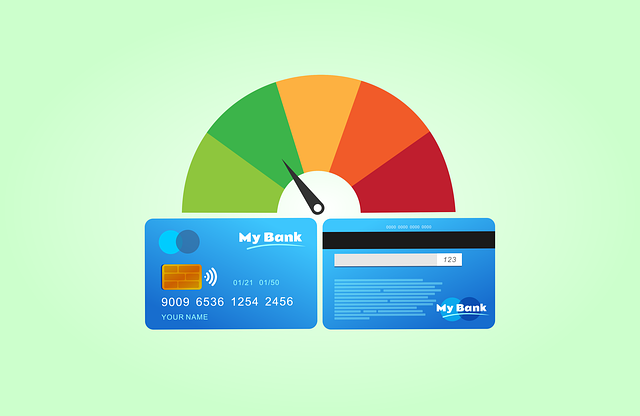Credit score hacks 2023 that help repairing your credit? There is no need to feel alone. Many people find themselves in the same situation and are unsure of where to turn. If you want to repair your credit score, there are some steps you can take. You will find 10 tips to help you on your path to better credit in this article.
You must understand that fixing bad credit takes time and dedication. Following these tips will make the process easier and more manageable for you, but it won’t happen overnight. You’ll learn how budgeting, paying off debt, and monitoring your credit report can all help you improve your finances.
It is possible for anyone to improve their credit score over time and regain financial stability with the right strategies. Now let’s talk about our top 10 credit repair tips!
Understanding Credit Scores Hacks 2023
The first step to improving your credit score is to understand it. Credit scores are three-digit numbers that indicate how trustworthy you are to lenders. The amount of debt you owe, the length of time you’ve had accounts open, and any missed payments on any of those accounts are taken into account. Identifying your credit situation can help you decide what steps you need to take to repair your credit.
Credit scores range from 300 to 850, with the FICO score being the most common. When it comes to creditworthiness, the higher your number, the better. If your credit score is below 650, you may have difficulty obtaining financing or receiving favorable interest rates.
Keeping an eye on your credit report regularly can help you identify mistakes or discrepancies that could be hurting your credit score. Every year, you are entitled to one free copy of your credit report from each of the three major bureaus (Experian, Equifax, and TransUnion). To avoid continuing to hurt your scores unnecessarily, dispute any errors you find on them as soon as possible. Keep track of your credit report and take these steps in order to have a good understanding of where you stand financially and what steps need to be taken in order to start repairing your credit.
Developing A Budget
Having gained a better understanding of credit scores, the next step in credit repair is to develop a budget. The creation of a budget can help you stay on track with your spending and saving goals, and it is a crucial part of any financial plan. Additionally, it can help you identify areas where you can save money so you can repay your debt more quickly. To help you create a successful budget, here are some tips:

Start by looking at your income and expenses honestly. Include all sources of income, such as wages from employment, investment or pension benefits, and any other sources of income. Once you’ve identified all your sources of income, list all your expenses. As well as fixed costs like rent or mortgage payments, variable costs like groceries or entertainment should be included.
Your next step should be to reduce your spending without sacrificing too much quality of life. Cut out of your budget items you don’t really need but are spending money on anyway – like subscription services or impulse purchases. You may also be able to save by shopping around for better prices or switching providers if you can reduce fixed costs.
You can begin setting realistic goals for reducing debt and increasing savings contributions once you understand how much money comes in and goes out each month. Start by allocating funds each month for debt repayment and an emergency fund if possible. Creating separate accounts for long-term savings goals, such as retirement or college savings, is also a good idea. Staying on top of your budget will help you reach these goals in the long run.
If you create a comprehensive budget and follow it consistently, you should be able to make significant progress toward repairing your credit.
Reviewing Credit Reports
Pay close attention to any inaccuracies in your credit reports when reviewing them. The sections of your credit report contain a lot of information, so be sure to read each one carefully. Verify the accuracy of personal information such as name, address, and Social Security number. Make sure you pay attention to the accounts listed on your report, including the balances and payment histories. You should contact the relevant creditor or collection agency right away if you find any errors in your report.

Make sure your credit report is free of signs of identity theft. Watch out for suspicious activity from lenders in states you don’t live in, inquiries from companies you have never done business with, and accounts you don’t recognize. In addition, check the public records section for any bankruptcies or judgments listed in your name that shouldn’t be there. Do not hesitate to file a dispute with the credit bureau if you notice anything unusual or suspicious.
Although credit repair is a long process, reviewing your credit reports can help you improve your score. Before taking any other steps to repair your credit, verify that all of the information on your credit report is accurate.
Negotiating With Creditors
As soon as you review your credit report, you can begin negotiating with creditors. Creditor negotiation can be tricky, but if done correctly, it can help you repair your credit score.
You should prepare all the necessary information before engaging in negotiations with a creditor, such current income and expenses. If you can demonstrate why you can’t pay the debt in full or on time, you will have a leg up when you negotiate. When negotiating with creditors, you may be able to increase your leverage by being aware of any applicable laws or regulations.
When speaking with creditors, remain calm and polite while expressing your willingness to negotiate and make payment arrangements. Provide a thorough explanation of your financial situation so they understand why you cannot pay off the entire debt. For successful payment of the debt, ask if they will remove negative items from your credit report if you negotiate for a lower interest rate or waived fees.
You can improve your credit score by negotiating with creditors, but it can be intimidating if you do it improperly. Despite what might seem like it at first, many creditors will work out payment plans so they can get paid what they are owed.
Making Timely Payments
Timely payment is one of the most important aspects of improving your credit score. Paying your bills on time is essential, as missed or late payments can negatively affect your credit score. Setting up automatic payments is the best way to ensure that all bills are paid on time. By doing this, you will ensure that you don’t forget a payment and it will also free up some of your time.
In the event that you have trouble making payments each month, you may want to consider setting up payment plans with your creditors. It is likely that most creditors are willing to work out an agreement that works for both parties, so do not hesitate to contact them if you need assistance. Furthermore, there are many resources available online and through financial institutions that can help you manage your finances better and make sure all your bills are paid on time and in full.

Making timely payments is crucial to improving your credit score; you should also check your credit report regularly for accuracy. Make sure all reported information is accurate and up-to-date, and dispute any errors with the three major credit bureaus as soon as possible. You can use this information to ensure that your credit report accurately reflects your credit improvement efforts.
Paying Down Debt
The first step in repairing your credit is to pay down your debt. Reducing your debt could improve your credit score, and it would result in a reduction in your debt. You can improve your credit score and pay down your debt by following these tips.
Creating a budget that suits your needs and helps you pay off your bills on time each month is the first step. As a result, you will stay on top of your debts and ensure that they are paid off in full. Aside from that, pay off high-interest debts first, as these will end up costing you more in the long run. Alternatively, you may consider consolidating several loans into a single payment to simplify management.
In the event you are unable to make payments, you may be able to get assistance from creditors or loan servicers. It may be possible for them to offer you alternative payment plans or lower interest rates so that you can afford your payments. If creditors understand your situation, they may be more willing to work with you and find an arrangement that works for both parties.
Your credit score can be repaired by paying off your debt and taking proactive measures to manage your finances.
Disputing Errors On Credit Reports
It is crucial to dispute any errors found on your credit report when it comes to credit repair. To keep your credit reports accurate and current, it’s important to review them regularly. You should immediately dispute any errors or discrepancies you find with the relevant credit bureau.
Whenever you dispute something, be sure to provide as much evidence as possible so that the credit bureau can properly evaluate the situation. If you have any documents or records that support your case, such as bank statements, payment receipts, or proof of identity, you should include them. It is imperative that you provide a clear explanation of why you are disputing the error and how it impacts your score.
Besides contacting the credit bureau directly, you may also consider hiring a professional credit repair service if the dispute process seems too complicated or you don’t have time to handle it. When people rely on professional services for credit repair, they can often achieve results faster than they could if they did it themselves.
You can improve your financial health by taking these steps and following through with any disputes promptly so that your credit report is accurate and up-to-date.
Secured Credit Cards

Credit cards with secured features are a great option for those looking to rebuild their credit. Their system works by requiring a cash deposit as collateral. The amount of the deposit is typically equal to the card’s limit. With responsible use, people can begin building their credit history and improve their score.
When choosing a secured card, make sure you pick a company with a good reputation. Check whether the fees, like those charged annually or monthly, do not outweigh the benefits. Don’t sign up for anything without checking the terms and conditions to make sure there are no hidden costs.
Over time, your credit score will increase if you pay your bills on time and pay off balances as you accrue them. Keeping track of your spending is also crucial, as is not exceeding your credit card limits or borrowing too much money all at once. Secured cards can help rebuild your credit quickly if you use them regularly and manage them carefully.
Consolidating Debt
Credit repair begins with consolidating debt. Secured credit cards are one key to credit repair. An individual takes out a single loan to pay off multiple debts, often in an effort to achieve a lower interest rate or simplify payments. By following this process, you can simplify your financial life and make paying down debt easier.
The first thing you should do when considering debt consolidation is to research all your options. In the case of multiple creditors, programs may be available that can help reduce or even eliminate interest rates and late fees. In addition, you should compare the terms of different loans in order to determine which one is most advantageous for you.
When you choose a debt consolidation loan, review your new agreement carefully to ensure all of your debts are included and that the terms are accurate. It is important to understand any fees associated with the loan, as well as the repayment schedule and consequences of not making your payments. The consolidation of your debt does not mean that it will be eliminated; you will still have to make regular payments until your debt is cleared.
In order to pay off your consolidated debt in a timely manner, you need to remain disciplined. It is essential to make your regular payments on time each month if you want to improve your credit score and maintain a healthy financial status.
Working With A Credit Counselor
Getting your credit repaired with the help of a credit counselor can be extremely beneficial. The experts can advise you on the best methods of repairing your credit and help you understand the procedure. There are many credit counselors who are certified by the National Foundation for Credit Counseling or the Association of Independent Consumer Credit Counseling Agencies, so you know they can give you accurate advice.
Working with a credit counselor begins with making sure the counselor has been certified and will work with you to improve your credit score. Be sure to ask about their experience and qualifications, as well as whether they have a good understanding of your situation. You may require different strategies depending on the person you are, so make sure any advice they give you is tailored specifically to you.

In spite of the temptation to take shortcuts or use services that promise quick results, they are often ineffective or even harmful. It is important to work honestly with a certified credit counselor to ensure that your efforts will pay off in the long run and improve your credit score as efficiently as possible. Do not hesitate to ask questions if anything is unclear, and do not hesitate to discuss any concerns you may have before taking action.
Frequently Asked Questions
How Long Does It Take To Repair Credit?
Credit repair hacks 2023 for people who wonder how long it takes to repair credit. A good credit score can open up many opportunities for savings and investments, which makes credit repair an important step in managing one’s finances. It is helpful to understand how the components of credit repair interact in order to properly assess the timeline for repairing one’s credit score.
Defining what negatively impacts one’s credit score is the first step to repairing it. It is necessary to review credit reports from all three major credit bureaus: Equifax, TransUnion, and Experian. Unpaid bills and past-due accounts can be identified by examining these reports. It is possible to take steps to address these areas once they have been identified.
Taking action on any items that are negatively impacting one’s credit score is the second step in repairing one’s credit score. You may pay off overdue accounts, negotiate with creditors on payment plans or debt settlements, or even dispute inaccurate information on the report with the three major credit bureaus. Depending on the severity of the issues in one’s report, this step may take several weeks to complete.
Lastly, once all necessary actions have been taken, one’s credit report and score will still take some time to reflect the changes. An individual’s overall score can take up to 90 days to reflect any changes made, depending on their individual circumstances and how long it takes for creditor updates to be processed by each bureau. In the long run, following through with a complete plan for repairing one’s credit will ultimately lead to positive financial outcomes.
Will Credit Repair Affect My Credit Score Hacks 2023?
People often wonder if credit repair will affect their credit score when it comes to credit repair. Yes, but you need to understand how. In the long run, credit repair can certainly improve your credit score.
Your credit score is a numerical representation of your creditworthiness based on your current and past financial activity. It’s calculated by taking into account factors such as payment history, debt-to-credit ratio, collection accounts, and more. Credit repair involves correcting mistakes on your credit report and making sure all information is accurate and up-to-date. By doing so, you’re essentially improving your overall financial health and increasing your chances of being approved for loans or other forms of financing in the future.
Even with the best efforts in credit repair, it can take some time before you see an improvement in your score. As a result, lenders report information to Equifax, Experian, and TransUnion at different times throughout the month. While you may make a payment or dispute an error today, it could take a few weeks or even months for that information to appear on your report and affect your score.
Are There Any Services That Can Help Me Repair My Credit?
My credit needs to be repaired. Are there any services available? A lot of people ask this question when they’re trying to improve their credit score. Fortunately, there are a few options available for those who need help with credit repair.
In the first place, there are companies that provide credit repair services. By disputing inaccurate or outdated information on credit reports, these firms help individuals improve their scores and credit reports. Using their experience, they will negotiate with creditors, assess the best solutions for each situation, and develop a plan to build good credit.
Another option is to seek advice from a financial advisor or debt counselor. These professionals can provide guidance on budgeting and smart money management practices, as well as other helpful strategies for improving one’s financial health. In addition to that, they can provide support and direction throughout the process of repairing one’s credit score.
Rebuilding your credit takes time and patience, no matter which route you choose. You may need to wait several months or even years before you see significant improvements in your score, but with dedication and commitment to the process, you can make significant progress.
Can I Repair My Credit Without A Credit Card?
It is imperative for those attempting to improve their credit score without a credit card to ask the question, “Can I repair my credit without a credit card?” Today’s H2 is “Can I repair my credit without a credit card?”. Using a credit card is not necessary to repair your credit.
There are many companies that offer credit repair services without requiring you to use a credit card. The services may include helping you create and stick to a budget, negotiating with creditors on your behalf, and providing guidance on how to manage debt and build good financial habits. Some of these services may even be free or inexpensive.
Additionally, you can improve your credit score without using a credit card by taking steps yourself. Over time, you will improve your credit score by paying all of your bills on time, keeping any outstanding balances low relative to their available credit limits, and avoiding additional debt. Regularly checking your credit report can also help you identify errors or signs of fraud that could adversely affect your score.

These steps can help you get back on track financially and improve your overall financial health – regardless of the type of account or payment method, you use. The use of a traditional credit card is not necessary to repair your credit with dedication and discipline.
What Is The Best Way To Rebuild My Credit?
It can be difficult to know what approach to take when rebuilding credit. It can be a daunting process, especially if you don’t have access to a credit card. It is possible to improve your credit without using a credit card, thanks to several steps.
It is important to review your credit reports as a first step. As a result, you will be able to identify any errors that may be present and determine where your credit score stands. Additionally, you should contact the three major credit bureaus Experian, TransUnion, and Equifax – and dispute any inaccurate information. In this way, you can ensure that your financial situation accurately reflects your credit score.
Once you have reviewed and corrected any errors on your reports, you can begin building a positive payment history. Be sure to pay all your bills on time each month and keep your balances low on existing accounts so that they don’t affect your credit score. If possible, consider opening a secured line of credit or an installment loan to demonstrate responsible borrowing.
With these steps, you will be able to build your creditworthiness and establish positive payment history over time. In no time at all, you should be able to rebuild your credit with dedication and perseverance!
Conclusion
So, you want to repair your credit? It’s no easy task, but it’s definitely possible! To make sure that you’re doing it correctly, here are 10 tips to help you get started.
In order to improve your credit score, you must first understand how long it will take. The process of credit repair requires patience and time. Your progress needs to be monitored diligently. In addition, be aware of services that may be able to assist you in repairing your credit. You can speed up the process by using legitimate services offered by some companies. Finally, don’t think that having a credit card is the only way to repair your credit. Secured credit cards and installment loans are other methods you may want to consider.
In conclusion, establishing a payment plan that works for you and your budget will help you rebuild your credit by being mindful of your debt load. Making consistent payments on time and following these tips will eventually help you improve your credit score. Don’t give up – you can repair your credit with dedication and hard work!
